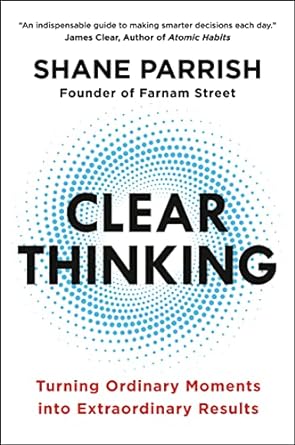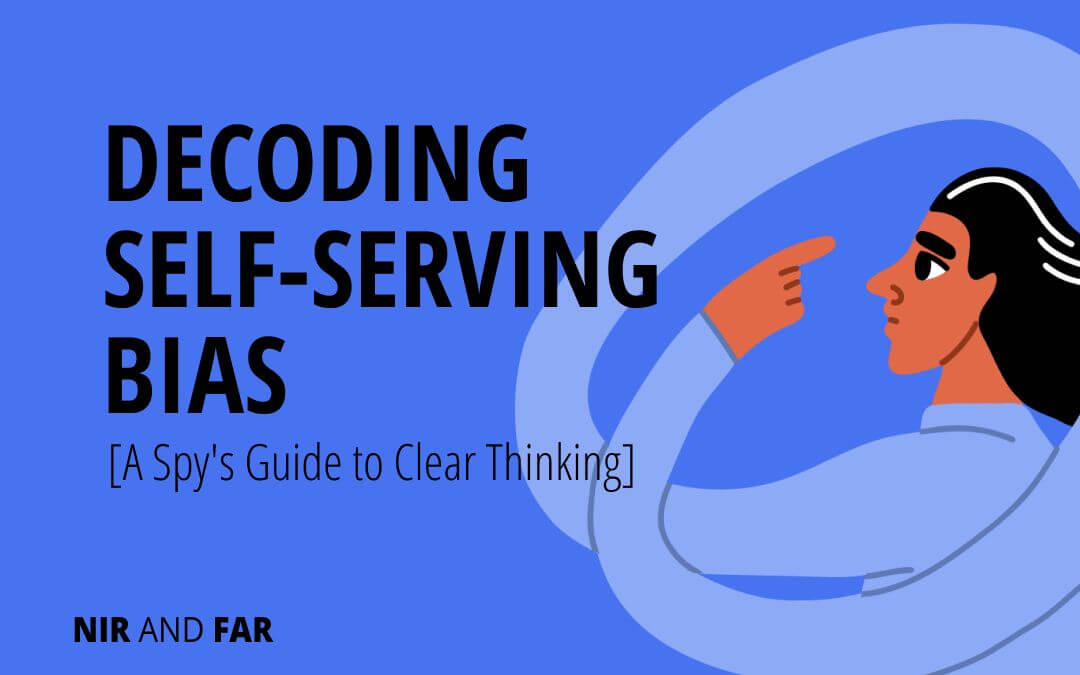
In the post- 9/ 11 world, we were all working nonstop and were under a lot of pressure. No one was sleeping more than five or six hours a night. Our health was questionable as we injected ourselves with coffee and Jolt cola once or twice an hour.
We were writing complex, mission-critical software at the lowest levels of the operating system—-difficult stuff even in the best of circumstances. There was no manual for this stuff, and you couldn’t simply Google how to do it.
We were breaking new ground. The time pressure didn’t help. We were doing all we could, yet it never seemed like enough. And after years of sixty-hour workweeks and constant pressure, our personal and professional relationships were strained and starting to crack.
My response felt completely natural: “But . . . I had all of these meetings and got pulled into this other project the director said was top priority. And . . . I planned to work on it Friday morning, but the bus got stuck in the snow, and it took two hours to get to work.”
I thought I kept my composure pretty well, but my inner dialogue was even more defensive. It went something like this:
“Dude! Cut me some slack. It’s Sunday. I haven’t had a vacation in years. I spend way more time with you than with my girlfriend. I’m doing the best I can, and nothing I do ever seems to be enough.”
“So, you’re telling me this wasn’t your fault?” he said innocently, setting a trap I didn’t see. “Look, a lot of stuff came up that I couldn’t control,” I said. “Don’t worry. I’ll get it done today.”
“That’s bullshit! It is your fault. Stop making excuses.” He turned his back and started walking away. “Do what needs to be done, or we’ll have to call off the operation because of you,” he said without a backward glance.
I suddenly felt energized, and not with the positive energy of surging toward a goal. The defaults took control. This was ego-defending energy. I was defending my territory, defending my very sense of self.
There’s no greater source of renewable energy in the world than when you’re defending your own self-image.
While my colleague didn’t threaten me physically, he threatened how I saw myself as working hard and getting things done. And when someone threatens how you see yourself, you stop thinking and start reacting.
I began writing up a list of all the things I’d done that week—how many hours I’d worked, how many projects I’d worked on, how many people and operations I’d helped. As I rehearsed these points, I got angrier and angrier. The inertia of my negative emotions turned into a powerful doom loop. I wasn’t conscious of the path I was on. I was reacting, not reasoning. My power to make excuses felt limitless:
“Who is this guy to tell me it’s my fault?! He doesn’t see what I see!” I emailed him the list. It filled over a page. His response arrived a few moments later:
“I don’t care. It’s your responsibility to our team and our mission to get your shit done. If you can’t own that, learn from it, and figure it out for next time. I don’t want to work with you.”
WTF!?!! My response moved beyond mental and became physical. My heart rate increased, and my eyes narrowed as I lost control of my feelings and thoughts. That short email derailed me for a few hours.
All the energy we put into defending ourselves comes at the expense of the very thing that would make the situation better: moving on and doing what needs to be done. It’s a choice we don’t realize we’re making. Had someone tapped me on the shoulder and said, “You’re about to spend three hours of energy on this, are you sure you want to do that?” I would have said no.
While that email was neither nice nor fair, it was kind and it changed my life. Sure, my colleague could’ve been gentler.*
But that didn’t mean he was wrong. Too often, the people we ask for feedback are kind but not nice. Kind people will tell you things a nice person will not.
A kind person will tell you that you have spinach on your teeth. A nice person won’t because it’s uncomfortable. A kind person will tell us what holds us back even when it’s uncomfortable. A nice person avoids giving us critical feedback because they’re worried about hurting our feelings. No wonder we end up thinking other people will be interested in our excuses.
My team was unmoved by the fact that the bus was late and it wasn’t my fault. All that mattered was the success of the operation. And results are what it usually boils down to.
No one cares about your excuses as much as you do. In fact, no one cares about your excuses at all, except you.
Too often, the people we ask for feedback are kind but not nice. Kind people will tell you things a nice person will not. -@ShaneAParrish of @farnamstreet Click To TweetNo One Cares. It’s Your Fault
When people’s actions have outcomes that don’t line up with how they see themselves, they tend to insulate their egos by blaming other people or unfavorable circumstances.
Psychologists even have a term for this tendency. They call it “self-serving bias,” a habit of evaluating things in ways that protect or enhance our self-image. Statements like “It was a great idea just poorly executed,” “We did the best we could,” and “We never should’ve been in this situation in the first place” are often manifestations of this bias.
Here’s the thing: It might be true. Maybe it really wasn’t a bad idea, just bad execution. Maybe you really did do the best you could. Maybe you never should have been in that situation in the first place. Unfortunately, it doesn’t matter. No one cares. None of it changes the outcome or solves the problems that still remain.
Not Your Fault? It’s Still Your Responsibility
Just because something happened that was outside of your control doesn’t mean it’s not your responsibility to deal with it the best you can. Our desire to protect ourselves prevents us from moving forward. It’s tempting to absolve yourself, throwing your hands up and claiming you have no control over the situation you’ve landed in.
And sure, sometimes that’s true. There are circumstances of chance that have a negative impact. People suffer misfortune all the time for reasons beyond their control: stray bullets, diseases, getting struck by a drunk driver.
Complaining does nothing to change the present situation you find yourself in, though. Thinking about how it wasn’t your fault doesn’t make anything better. The consequences are still yours to deal with.
Always focus on the next move, the one that gets you closer or further from where you want to go.
If you play poker, you learn this intuitively. You’re dealt a hand based mostly on luck. Feeling sorry for yourself, complaining about the hand you were dealt, or blaming others for how they played their hands only distracts you from what you can control. Your responsibility is to play the hand as best you can.
You can put energy into things you control or things you don’t control. All the energy you put toward things you don’t control comes out of the energy you can put toward the things you can.
While no one chooses difficult circumstances, adversity provides opportunity. It allows us to test ourselves, and see who we’ve become. The test isn’t against other people, though; it’s against our former selves. Are we better than we were yesterday? When circumstances are easy, it’s hard to distinguish ordinary people from extraordinary ones, or to see the extraordinary within ourselves. As the Roman slave Publilius Syrus once said, “Anyone can steer the ship when the sea is calm.”
The path to being exceptional begins when you decide to be responsible for your actions no matter the situation. Exceptional people know they can’t change the hand they’ve been dealt, and don’t waste time wishing for a better one. They focus instead on how they’re going to play the cards they have to achieve the best result. They don’t hide behind others.
The best people rise to the challenge—whatever it is. They choose to live up to their best self-image instead of surrendering to their defaults.
One of the most common mistakes people make is bargaining with how the world should work instead of accepting how it does work. Anytime you find yourself or your colleagues complaining “that’s not right,” or “that’s not fair,” or “it shouldn’t be that way,” you’re bargaining, not accepting. You want the world to work in a way that it doesn’t.
Failing to accept how the world really works puts your time and energy toward proving how right you are. When the desired results don’t materialize, it’s easy to blame circumstances or others. I call this the wrong side of right. You’re focused on your ego not the outcome.
Solutions appear when you stop bargaining and start accepting the reality of the situation. That’s because focusing on the next move, rather than how you got here in the first place, opens you up to a lot of possibilities. When you put outcome over ego, you get better results.
*He would go on to become my best friend.

BOOST YOUR PRODUCTIVITY
LEARN HOW TO FINALLY CHECK OFF YOUR MOST IMPORTANT TASKS, WITH THE
HYPERBOLIC DISCOUNTING WORKBOOK
Your email address is safe. I don't do the spam thing. Unsubscribe anytime. Privacy Policy.
Related Articles
- Schedule Maker: a Google Sheet to Plan Your Week
- Habit Tracker in Google Sheets – Free Template
- A List of 20 Values [and Why People Can’t Agree On More]
- Timeboxing: Why It Works and How to Get Started in 2024
- An Illustrated Guide to the 4 Types of Liars
- Hyperbolic Discounting: Why You Make Terrible Life Choices
- Happiness Hack: This One Ritual Made Me Much Happier

